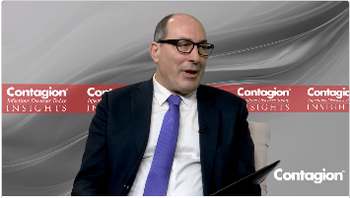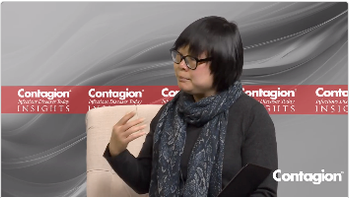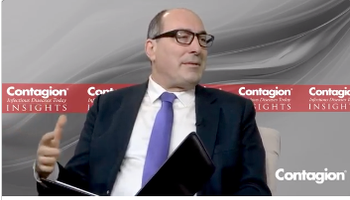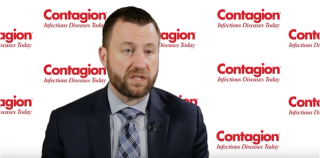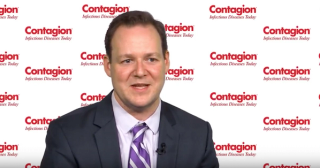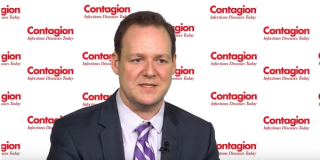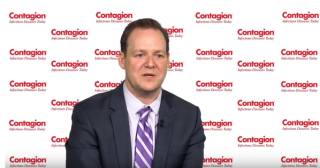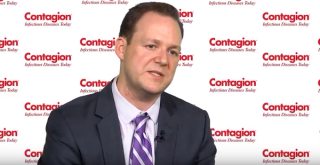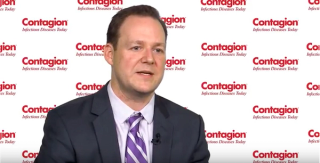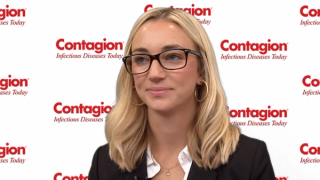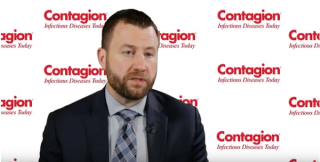
Prevention
Latest News
Latest Videos

CME Content
More News

An intervention involving improved communication and antibiotic timeouts in nursing homes reduced the days of antibiotic therapy, according to a recent study.
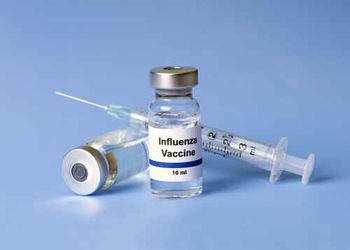
The rate of health care-associated influenza cases per season decreased from a median of 16.8 cases pre-policy rollout to 5.2 cases post-policy rollout at a large pediatric hospital.

Tristan Ferry, MD, PhD, discusses why there is a need to develop alternatives to treat chronic bone and joint infections.

A shortage of infectious disease physicians should have us all concerned and here's why.

CAMERA2: Combination Therapy for MRSA Bacteremia Effective but Linked to Higher Mortality, AKI Rates
Investigators found increased mortality in the combination arm where 21% of patients died vs 16% in the standard therapy arm, although the number of patients with persistent bacteremia at day 5 in the combination arm was significantly reduced compared with standard therapy.

Rezafungin achieved greater and more prolonged penetration at sites of intra-abdominal candidiasis than micafungin, which correlates with significantly greater activity against FKS-mutant Candida glabrata clinical strains.

Investigators detail the activity of cefiderocol, a novel parenteral siderophore cephalosporin, against carbapenem-resistant clinical isolates.

In a study of hospitalized patients across Europe, oritavancin (MIC50/MIC90, 0.03/0.06 mg/L) inhibited all S aureus isolates at ≤0.12 mg/L (susceptible breakpoint).

Ignacio Martin-Loeches, MD, PhD, discusses the efficacy outcomes of the ASPECT-NP trial evaluating ceftolozane/tazobactam for the treatment of nosocomial pneumonia.

A large percentage (96%) of health care worker respondents reported feeling confident in their knowledge of antibiotic resistance, but only 60% answered the 7 key questions correctly.

A new study showed no statistically significant reduction in clinical cultures between chlorhexidine bathing and routine care.

With the proper use of antiretroviral therapy and pre-exposure prophylaxis, the risk of HIV transmission has never been lower. So why do some practitioners hesitate to endorse condomless sex?

Investigators sampled 6 ball pits in physical therapy clinics throughout Georgia to determine the level of microbial colonization.

Warnings and concerns regarding fluoroquinolones are on the rise, but the antibiotics still play a role, albeit more limited, in the treatment of various infectious diseases.

Contagion® caught up with William Schaffner, MD, medical director of the National Foundation for Infectious Diseases, to discuss the highlights from this week’s NFID Annual Conference on Vaccinology Research.
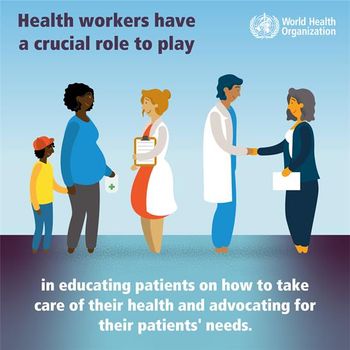
Contagion® is reflecting on the advancements in treatment and prevention that have been made in infectious diseases while identifying areas that need further improvement to reduce preventable deaths globally.

A commentary on β-lactam combination therapy for methicillin-resistant Staphylococcus aureus bacteremia.

An intradermal Ebola vaccine candidate shows promise as a safe, temperature-stable, and effective option for preventing outbreaks, new data show.

The latest case cluster in the United States has led a university to change policy regarding the MMR vaccine.

A new study found an average decrease of sexual anxiety by 0.27 points when participants were on PrEP compared with before treatment.
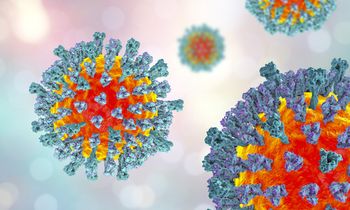
Contagion® Launches Insights Program Featuring Experts on Measles, Vaccination, and Public Health
To shed light on the current measles outbreaks, Contagion® is launching a video series featuring the perspectives of 2 medical experts.

